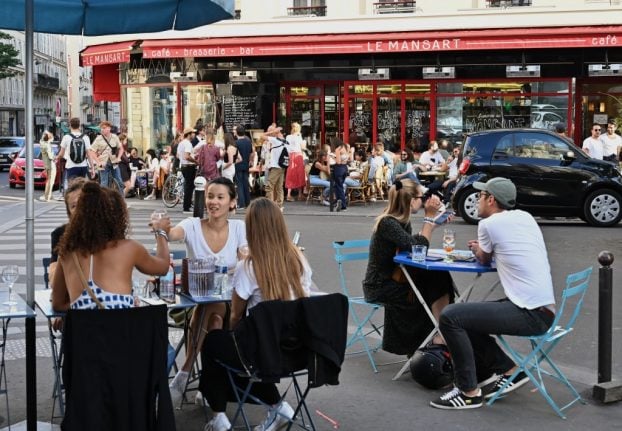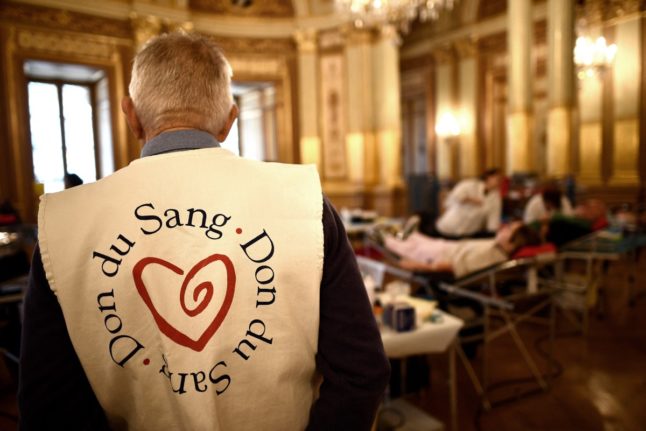When France lifted its strict lockdown in April, cafés in Paris were initially only allowed to open their outdoor terrace areas.
That restriction was later lifted, but many cafés had already been granted permission by the mayor to expand their cramped terraces – with many annexing parking spots and smaller streets to create larger spaces for their customers to spread out in.
The terraces have remained popular over the summer, with many café owners reporting that their customers feel safer and more comfortable outside in the open air.
Now Paris City Hall says it will extend the temporary permissions until June 30th 2021.
READ ALSO 'Everyone wants to be outside' – how Paris cafés are coping with the new health rules
Deputy mayor Emmanuel Grégoire said that the extension would be granted “given the extent of the crisis that is hitting the sector”.
Around 8,000 Paris cafés have been granted extensions, although they are accompanied with strict conditions, including that the extended part of the terrace must close by 10pm.
Since the end of the lockdown Paris mayor Anne Hidalgo has worked hard to adapt the landscape of the city to permit as much social distancing as possible – with the creation of more pedestrianised streets to allow for café terraces to expand and the creation of extra cycle lanes to reduce he need for people to crowd onto public transport.
The Rue de Rivoli has become a cycle-only route since the lockdown ended.



 Please whitelist us to continue reading.
Please whitelist us to continue reading.
Member comments